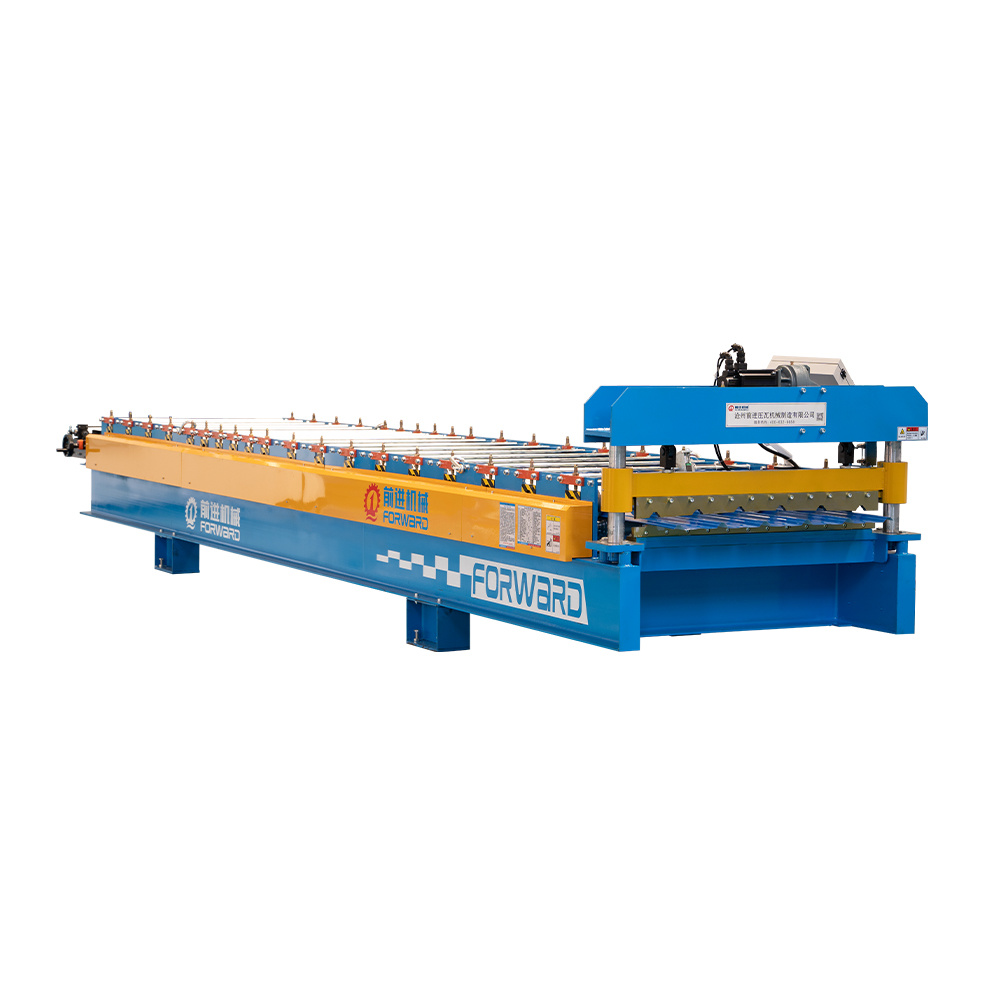Unlocking the Potential of Profile Roll Forming Machines in Modern Manufacturing

Profile roll forming machines are essential tools in the manufacturing sector, particularly in the production of various metal profiles. These machines utilize a continuous bending process to shape metal sheets into desired cross-sectional profiles that can be used in numerous applications, including construction, automotive, and furniture industries. Understanding how profile roll forming machines function and their benefits can significantly improve operational efficiency and product quality.
The core functionality of a profile roll forming machine involves feeding a flat metal sheet through a series of rollers. Each roller is strategically designed to progressively shape the metal into the final profile. This process is not only efficient but also allows for high levels of accuracy and repeatability, which are critical in mass production environments. By maintaining tight tolerances, manufacturers can ensure that their products consistently meet quality standards, reducing waste and rework.
One of the primary benefits of using profile roll forming machines is their ability to handle a variety of materials, including steel, aluminum, and even specialized alloys. This versatility makes them suitable for producing a wide range of profiles, from simple shapes to complex designs. Additionally, these machines can operate at high speeds, significantly increasing production throughput without compromising quality.
Another advantage is the minimal material waste generated during the roll forming process. Because the material is shaped rather than cut, manufacturers can maximize their raw material usage, leading to cost savings and a more sustainable production cycle. This characteristic is particularly appealing in today's environmentally conscious market, where reducing waste is a priority for many businesses.
Furthermore, profile roll forming machines can be easily integrated into automated production lines, enhancing operational efficiency. Automation reduces the need for manual labor, speeds up the production process, and minimizes the risk of human error, ultimately leading to a more streamlined operation. With advancements in technology, many modern roll forming machines also come equipped with sophisticated monitoring systems, allowing manufacturers to track performance in real-time and make necessary adjustments on the fly.
In conclusion, profile roll forming machines play a pivotal role in modern manufacturing by providing efficient, precise, and sustainable solutions for producing a variety of metal profiles. Their versatility, speed, and integration capabilities make them invaluable assets to any manufacturing operation looking to enhance productivity and maintain competitive advantages in the market. Embracing this technology can not only improve product quality but also pave the way for innovative applications across various industries.
The core functionality of a profile roll forming machine involves feeding a flat metal sheet through a series of rollers. Each roller is strategically designed to progressively shape the metal into the final profile. This process is not only efficient but also allows for high levels of accuracy and repeatability, which are critical in mass production environments. By maintaining tight tolerances, manufacturers can ensure that their products consistently meet quality standards, reducing waste and rework.
One of the primary benefits of using profile roll forming machines is their ability to handle a variety of materials, including steel, aluminum, and even specialized alloys. This versatility makes them suitable for producing a wide range of profiles, from simple shapes to complex designs. Additionally, these machines can operate at high speeds, significantly increasing production throughput without compromising quality.
Another advantage is the minimal material waste generated during the roll forming process. Because the material is shaped rather than cut, manufacturers can maximize their raw material usage, leading to cost savings and a more sustainable production cycle. This characteristic is particularly appealing in today's environmentally conscious market, where reducing waste is a priority for many businesses.
Furthermore, profile roll forming machines can be easily integrated into automated production lines, enhancing operational efficiency. Automation reduces the need for manual labor, speeds up the production process, and minimizes the risk of human error, ultimately leading to a more streamlined operation. With advancements in technology, many modern roll forming machines also come equipped with sophisticated monitoring systems, allowing manufacturers to track performance in real-time and make necessary adjustments on the fly.
In conclusion, profile roll forming machines play a pivotal role in modern manufacturing by providing efficient, precise, and sustainable solutions for producing a variety of metal profiles. Their versatility, speed, and integration capabilities make them invaluable assets to any manufacturing operation looking to enhance productivity and maintain competitive advantages in the market. Embracing this technology can not only improve product quality but also pave the way for innovative applications across various industries.
Key words:
recommend News
Share



